They are perhaps the most famous Negro League baseball team in history. This is due in large part to their alumni which includes Hall of Famers Ernie Banks, Jackie Robinson, and Satchel Paige. The Kansas City Monarchs are also the longest-lasting Negro League team in history having been founded in 1920 playing through the summer of 1965, a generation after the integration of baseball.
The team was founded by a white businessman named J.L. Wilkinson and was a charter member of the Negro National League. Before the formation of the league, the club was a barnstorming team that played throughout the Midwest in the years before World War I.
With the formation of the Negro National League in 1920, the club settled into Association Stadium in Kansas City, before moving into Muehlebach Field which, after a few name changes would become known simply as Kansas City Municipal Stadium.
The Monarchs won four league titles between 1920 and 1931, winning the Negro League World Series in 1924. A casualty of the depression, the Negro National League folded after the 1931 season. However, the Monarchs soldiered on as an independent team, barnstorming their way across the Midwest, South, and Eastern United States, as well as Western Canada. They were also pioneers in night baseball, traveling with their lighting system several years before the Reds and Phillies played the first night game in Major League Baseball.
In 1937, the Monarchs joined the Negro American League where they stayed until that circuit disbanded after the 1961 season. However, their barnstorming days were not completely over. Many of their games were played at neutral sites. In 1938, for example, they played the Chicago American Giants at Brochert Field in Milwaukee.
In 1949, the Monarchs met the Indianapolis Clowns in tiny Hopkinsville, KY and drew 2,500 fans. While not a huge crowd, it was a sell-out with fans lined up down each foul line past the stands. It was quite a crowd for a baseball game in a small Southern Kentucky town.
A year before that game, Wilkinson sold the team to his partner Tom Baird. Wilkinson must have seen the writing on the wall as the year before that, 1947, Jackie Robinson, who played for the Monarchs in 1945, made his debut with the Brooklyn Dodgers, breaking Major League Baseball’s color barrier.
Another blow to the Monarchs came in 1955 when Major League Baseball’s Philadelphia Athletics moved to Kansas City. For a year the two clubs shared Municipal Stadium, but, of course, the Athletics got the most favorable dates, while the Monarchs rent went through the roof. Despite a losing record, fans turned out in droves to watch the newly-arrived A’s.
The following season, Baird sold the team to Ted Rasberry who moved them to Grand Rapids, Michigan, his hometown. There, they retained the Kansas City Monarchs name. They gradually returned to barnstorming, still playing in the Negro American League.
At the time, Rasberry also owned the Detroit Stars in the same league. When league officials informed him he couldn’t own two teams he sold the Stars to his niece, Minnie Forbes, likely making her the first woman, and an African-American at that, to own a pro sports team. Also of note, as more players defected to Major League Baseball, the Negro Leagues invited women to join their teams. A total of three did.
Even after integration, the Negro Leagues hung on for several more years because at first, Major League teams were only allowed to have two black players on their rosters. Indeed, the Boston Red Sox were the last team to sign a black ballplayer. That was in 1969. Gradually that rule was phased out and more Negro League players went to American and National League teams.
After the collapse of the Negro American League in 1961, the Monarchs were a full-on barnstorming club until their final season in 1965. They used Valley Field in Grand Rapids as their home, a facility that still stands and is in use today.
According to a Grand Rapids-based website called Friends of the Ballpark, the stadium was renamed Sullivan Field in 1996 to honor a long-time amateur baseball sponsor from the area. There is no mention of the stadium being the home to the Monarchs for ten seasons. However, in 2000, a school-owned ball field southeast of downtown Grand Rapids was renamed Ted Rasberry Field.


